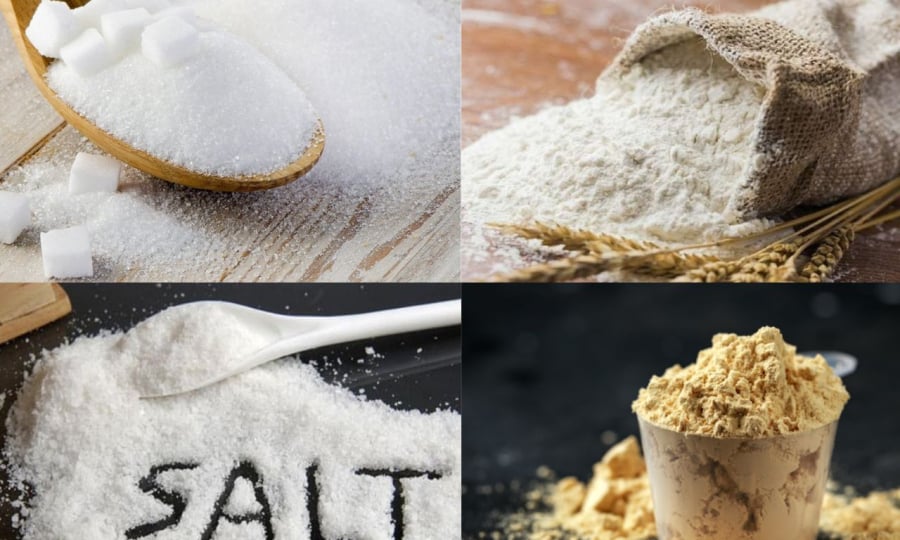For years, animal fat has been labeled as the “number one enemy” of cardiovascular health due to its high saturated fat content. However, according to Professor Watanabe’s warning, some foods can be even more detrimental to heart health as they attack blood vessels quickly and silently when consumed regularly without control.
1. Foods That Are Harmful to Cardiovascular Health
1.1 Refined Sugar – The Hidden Vascular Destroyer in Sweetness
Unlike animal fat, which takes time to accumulate, refined sugar is quickly absorbed into the bloodstream, causing a sudden spike and then a drop in blood sugar levels, leading to metabolic disorders. This results in visceral fat accumulation, the production of free radicals that cause inflammation, and damage to the endothelial cells lining our blood vessels.
Notably, white sugar is not only found in cakes and sweets but also lurks in seemingly harmless products like sauces, jerky, and bottled drinks… causing us to unknowingly exceed the recommended intake. The World Health Organization advises that individuals should not consume more than 50g of refined sugar per day, equivalent to 10% of total energy intake.
1.2 White Flour – The Stealth Culprit in Dyslipidemia
White flour, often overlooked, is another dangerous item on the list of foods harmful to cardiovascular health. Present in bread, cookies, and instant noodles, this refined carbohydrate increases blood sugar levels rapidly, promoting insulin resistance and dyslipidemia. Unlike animal fat, which is easily identifiable and avoidable, overconsumption of white flour can happen daily without one’s knowledge.
According to Professor Watanabe, the more refined a food product is, the lower its nutritional value and the higher its potential for harm. White flour, in particular, can lead to excess consumption, impacting the vascular system negatively.

White flour is one of the harmful foods for cardiovascular health.
1.3 Excessive Salt Intake – Accelerating Arterial Stiffness and Rupture
While fat increases cholesterol levels, excessive salt intake directly impacts blood pressure. When the body absorbs too much salt, the blood vessel walls are constantly stretched, leading to arterial stiffness, aneurysms, and even rupture. A package of instant noodles, for example, may contain almost the entire daily limit of 6g of salt recommended by the WHO.
The concern is that a high-salt diet often shows no immediate symptoms, and signs of hypertension, arrhythmia, or stroke may only appear when the damage is already severe. The solution is to modify seasoning habits, using lemon, vinegar, or garlic instead of soy sauce or thick soy sauce to reduce sodium intake while maintaining flavor.
1.4 Protein Powders – Potential Risk for Fitness Enthusiasts
In the fitness community, protein powders are often touted as the key to rapid muscle growth. However, experts caution that excessive consumption of more than 4-5 spoonfuls per day can overwork the kidneys, leading to their inability to excrete sodium and water, resulting in increased blood pressure and additional stress on the heart.
Professor Watanabe emphasizes that when the kidneys are damaged due to protein powder overuse, the cardiovascular system will be the next to suffer. He recommends that healthy individuals prioritize getting their protein from lean meats, eggs, and fish rather than relying on industrial protein powders unless specifically advised by a physician.
2. Expert Advice
Animal fat is not always the primary culprit in cardiovascular disease. Many seemingly harmless white foods, such as refined sugar, white flour, excessive salt, and protein powders, can be the top harmful foods for cardiovascular health when consumed in excess.
Instead of completely eliminating these foods, consumers need to learn portion control, read labels carefully, and maintain a balanced diet that limits the intake of artery-clogging substances. Taking charge of our food choices will help protect our cardiovascular health and overall well-being in the long run.
































